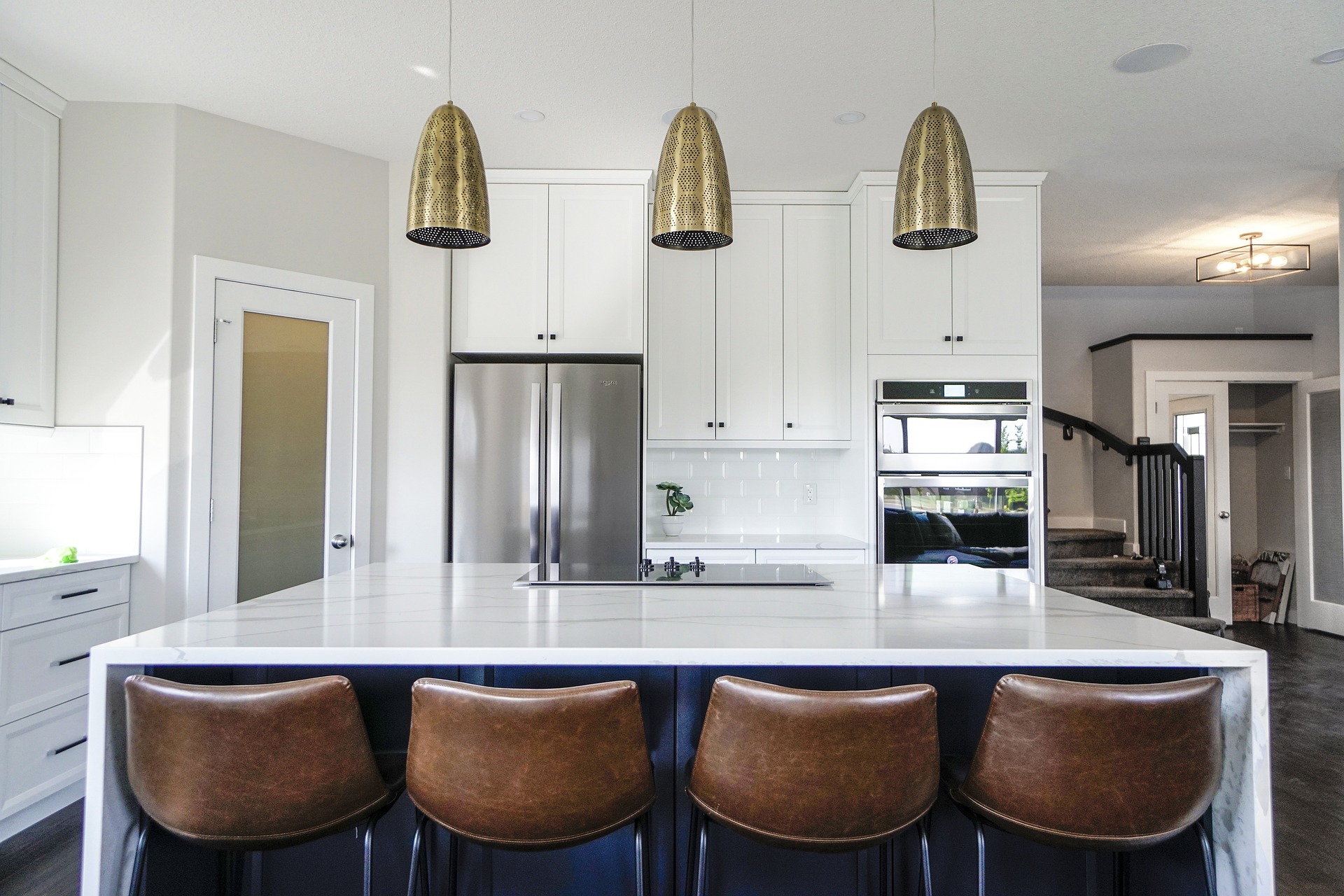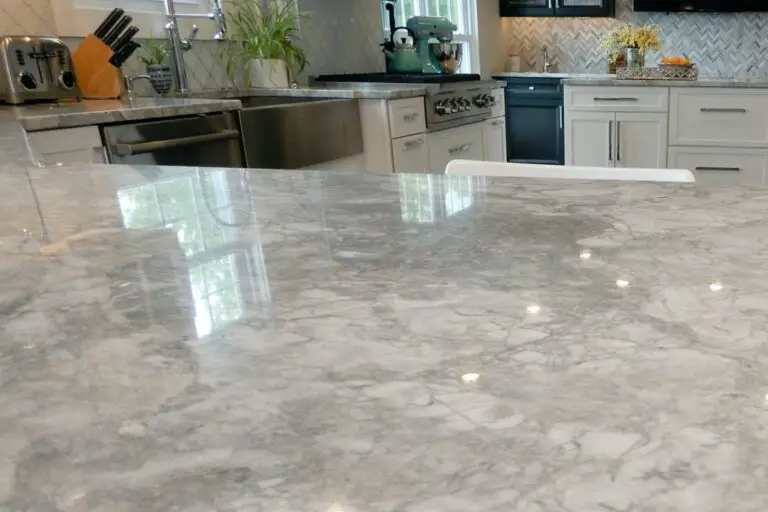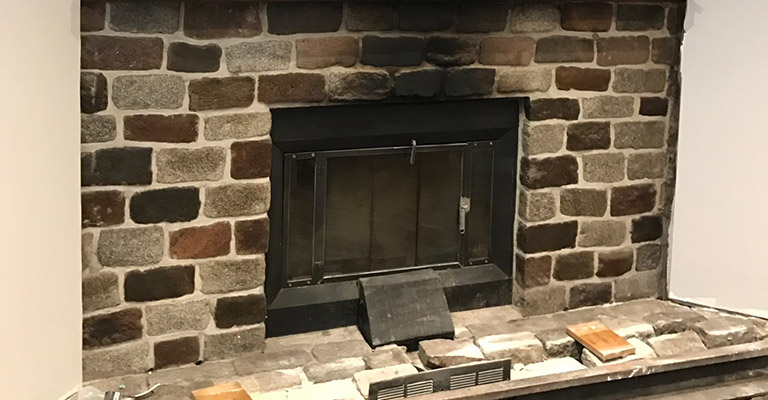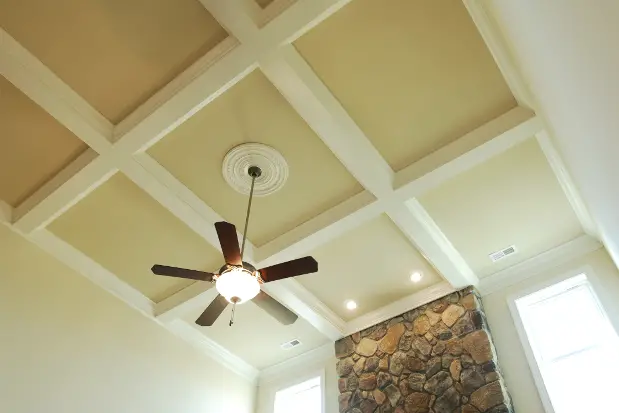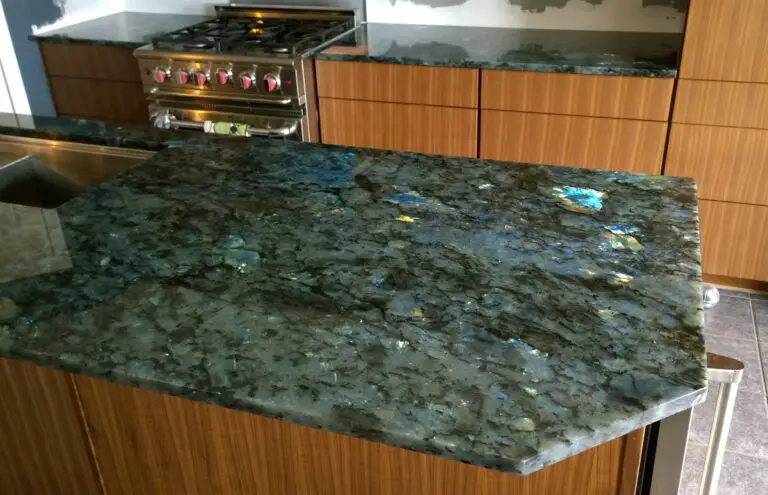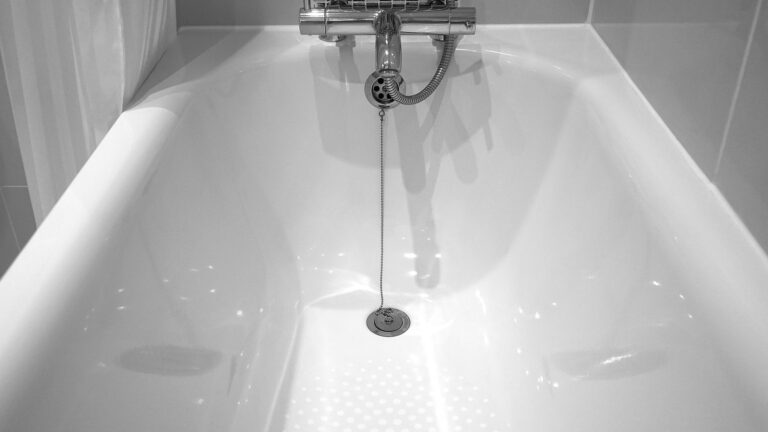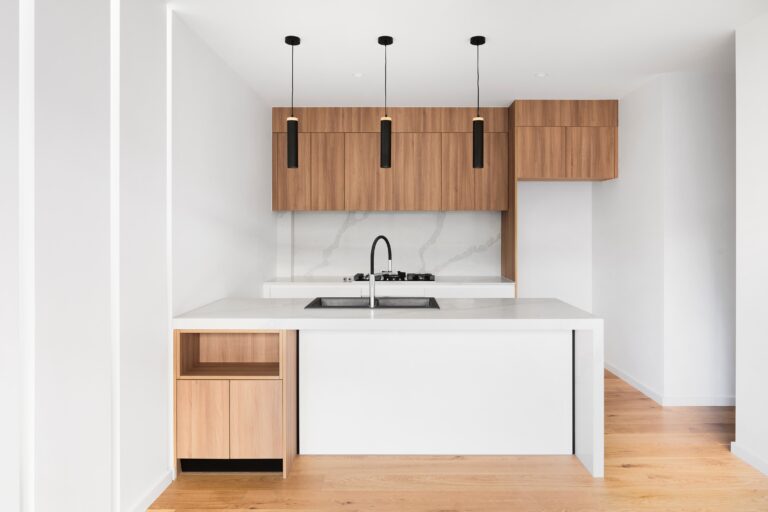Quartz Countertops Cost: Prices and Factors
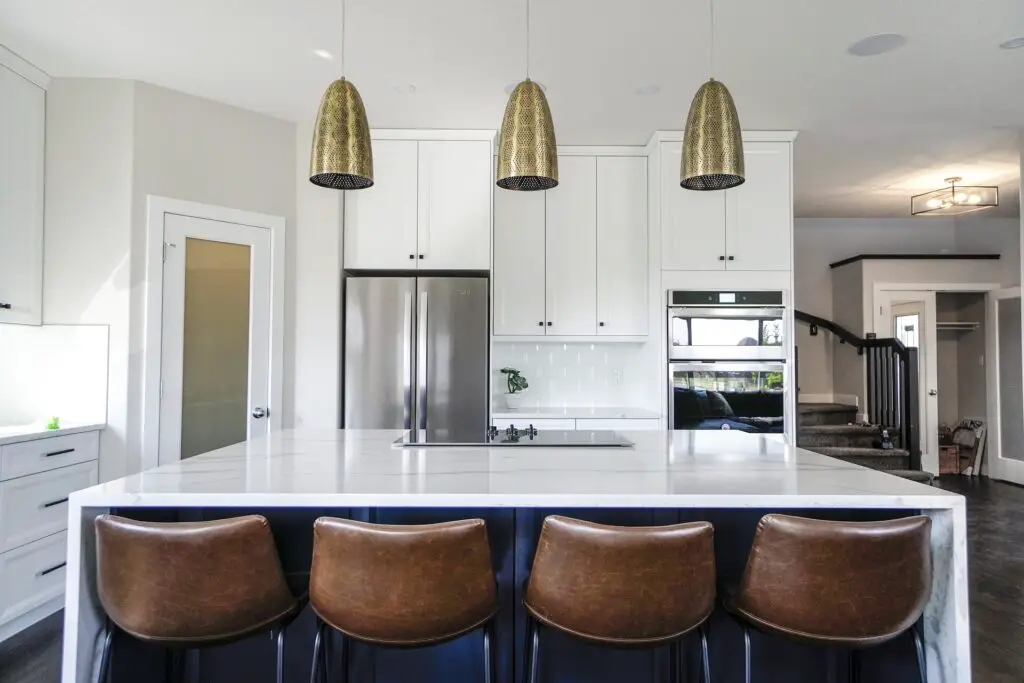
Quartz countertops have become increasingly popular in recent years due to their durability and aesthetic appeal. However, before investing in this type of countertop, it is important to understand the associated costs. The cost of quartz countertops can vary depending on several factors, including the quality of the material, the size of the countertop, and the complexity of the installation.
According to recent data, the national average cost of quartz countertops is around $4,500. However, this cost can range from $1,500 to $12,000 depending on the specific factors mentioned above. Homeowners should also keep in mind that the cost of installation is typically not included in the price of the countertop itself. The cost of installation can vary depending on the complexity of the project, with more complex installations requiring more labor and thus a higher cost.
When considering the cost of quartz countertops, it is important to weigh the benefits against the cost. While quartz countertops may be more expensive than other types of countertops, they offer several benefits, including durability, resistance to scratches and stains, and a wide range of colors and patterns to choose from. Ultimately, the decision to invest in quartz countertops will depend on the individual’s budget and priorities.
Factors Affecting Quartz Countertops Cost
When it comes to quartz countertops, there are several factors that can impact the cost of installation. Here are the most important factors to consider:
Material Quality
The quality of the quartz material used for the countertops is one of the most significant factors that affect the cost. High-quality quartz is more expensive than lower quality quartz, but it also tends to be more durable and resistant to damage. The thickness of the countertop also affects the cost, with thicker countertops typically costing more than thinner ones.
Complexity of Installation
The complexity of the installation process is another important factor that can impact the cost of quartz countertops. For example, if the installation requires additional customization or cutting, the cost may increase. Additionally, if the installation requires the removal of an existing countertop, this can add to the overall cost of the project.
Brand and Source
The brand and source of the quartz used for the countertops can also impact the cost. Different brands have different price points, and some may be more expensive than others. Additionally, the source of the quartz can impact the cost, with imported quartz typically being more expensive than domestically sourced quartz.
Overall, the cost of quartz countertops can vary widely depending on these and other factors. It’s important to do your research and shop around to find the best quality quartz countertops at a price that fits your budget.
Price Comparison with Other Countertop Materials
Granite vs. Quartz
Granite is a natural stone that is often used for kitchen countertops. It is known for its durability and natural beauty. However, granite can be more expensive than quartz, with prices ranging from $50 to $250 per square foot. Additionally, granite requires sealing to prevent staining and bacteria growth, which can add to the overall cost. Quartz, on the other hand, is a man-made material that is designed to mimic the look of natural stone. It is often less expensive than granite, with prices ranging from $50 to $200 per square foot. Quartz also does not require sealing, making it a low-maintenance option.
Laminate vs. Quartz
Laminate is a popular choice for those on a budget, with prices ranging from $10 to $40 per square foot. However, laminate is not as durable as quartz and can be easily scratched or chipped. It also does not have the same level of heat resistance as quartz, making it more prone to damage from hot pots and pans. Quartz, on the other hand, is more expensive than laminate but offers greater durability and heat resistance. It is also available in a wider range of colors and styles than laminate.
Marble vs. Quartz
Marble is a luxurious natural stone that is often used for high-end kitchen countertops. However, it is also one of the most expensive options, with prices ranging from $75 to $250 per square foot. Marble is also more prone to staining and etching than quartz, which can add to the overall maintenance costs. Quartz, on the other hand, offers similar durability and heat resistance to marble but is less expensive, with prices ranging from $50 to $200 per square foot. It is also less prone to staining and etching, making it a more practical option for many homeowners.
In conclusion, when comparing the cost of different countertop materials, quartz is often a more affordable and practical option than granite, marble, and other natural stones. While laminate may be a more budget-friendly option, it lacks the durability and heat resistance of quartz. By choosing quartz, homeowners can enjoy a low-maintenance, long-lasting, and stylish countertop that will add value and functionality to their kitchen.
Cost-Saving Tips for Quartz Countertops
When it comes to quartz countertops, cost can be a major factor in deciding whether to go for it or not. But with the right knowledge and approach, you can save money without compromising on quality. Here are some cost-saving tips for quartz countertops.
Choosing the Right Supplier
One of the best ways to save money on quartz countertops is to choose the right supplier. Look for a supplier who offers competitive pricing and has a good reputation in the market. It is also a good idea to get quotes from multiple suppliers and compare them to find the best deal. Don’t forget to check the warranty offered by the supplier, as this can affect the overall cost in the long run.
Opting for Remnants
Another way to save money on quartz countertops is to opt for remnants. Remnants are leftover pieces of quartz slabs that are sold at a discounted price. While remnants may not be enough to cover an entire countertop, they can be used for smaller projects such as or backsplashes. This can be a great way to save money without compromising on quality.
DIY Installation Considerations
While professional installation is recommended for quartz countertops, DIY installation can be a cost-saving option if you have the skills and experience. However, it is important to consider the potential risks and costs of DIY installation, such as damage to the countertop or the need to purchase or rent specialized tools. If you decide to go for DIY installation, make sure to research and plan carefully to avoid any costly mistakes.
By following these cost-saving tips for quartz countertops, you can enjoy the benefits of this beautiful and durable material without breaking the bank.
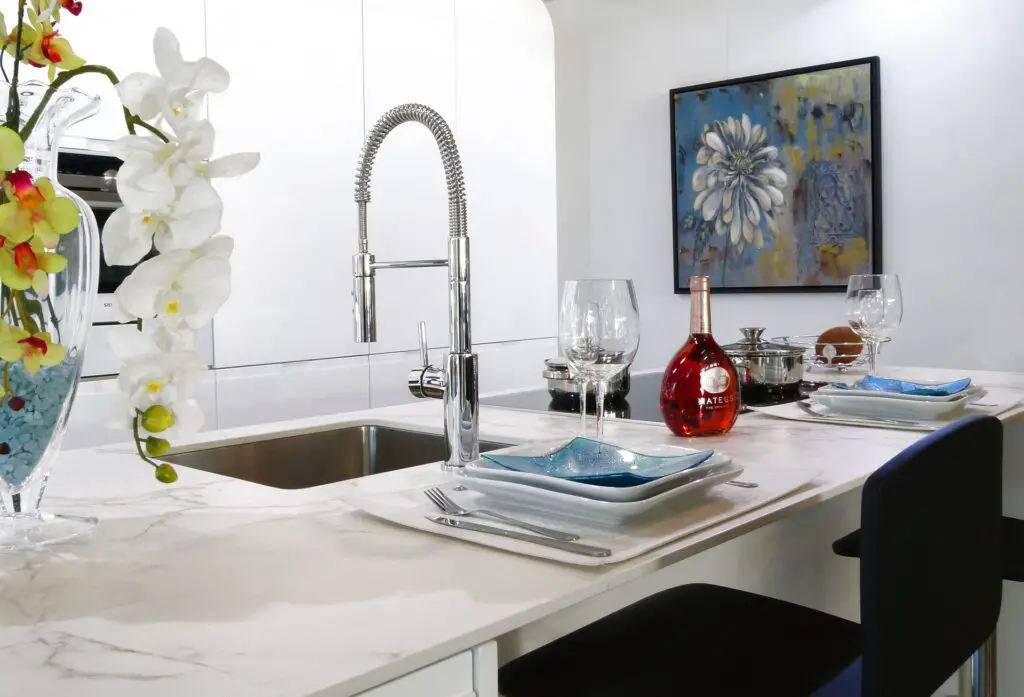
Long-Term Value of Quartz Countertops
Quartz countertops are not only an attractive addition to any home, but they can also provide long-term value. While the initial cost of quartz countertops may be higher than other materials, such as laminate or solid surface, the durability and low maintenance of quartz can save homeowners money in the long run.
One of the main advantages of quartz countertops is their resistance to stains and scratches. Unlike natural stone countertops, quartz is non-porous, making it less likely to stain or harbor bacteria. Additionally, quartz is a harder material than granite, which makes it more resistant to scratches and chips.
Another benefit of quartz countertops is their low maintenance requirements. Unlike natural stone countertops that require regular sealing, quartz countertops do not need to be sealed. This can save homeowners time and money in the long run.
Furthermore, quartz countertops can add value to a home. According to HomeAdvisor, quartz countertops can increase a home’s resale value. This is due to their durability, low maintenance, and attractive appearance.
In summary, while the initial cost of quartz countertops may be higher than other materials, their long-term value and low maintenance requirements make them a worthwhile investment for homeowners.
Frequently Asked Questions (FAQs)
Q: How is the cost of quartz countertops determined per square foot?
A: The cost of quartz countertops is determined by a variety of factors, including the quality of the quartz, the size of the countertop, and the complexity of the installation process. Most quartz countertops cost between $50 and $200 per square foot, with an average cost of around $125 per square foot.
Q: What factors influence the overall cost of installing quartz countertops in a kitchen?
A: The overall cost of installing quartz countertops in a kitchen is influenced by several factors, including the size of the kitchen, the complexity of the installation, the quality of the quartz, and the cost of labor. Additionally, the cost of other materials, such as sinks and faucets, can also impact the overall cost.
Q: Can you explain how to use a quartz countertops cost calculator for accurate budgeting?
A: To use a quartz countertops cost calculator, you will need to input the size of your kitchen, the type of quartz you are interested in, and any additional materials or services you may require. The calculator will then provide you with an estimated cost for your project, which can be used for accurate budgeting.
Q: What is the average cost of quartz countertops at major retailers like Home Depot?
A: The average cost of quartz countertops at major retailers like Home Depot can vary depending on the quality of the quartz and the size of the countertop. On average, you can expect to pay between $50 and $200 per square foot for quartz countertops at Home Depot.
Q: How does the cost of white quartz countertops compare to other color options?
A: The cost of white quartz countertops can vary depending on the quality of the quartz and the size of the countertop. In general, white quartz countertops are priced similarly to other color options, with an average cost of between $50 and $200 per square foot.
Q: Are quartz countertops considered more cost-effective than granite over the long term?
A: While quartz countertops may have a higher upfront cost than granite, they are often considered more cost-effective over the long term due to their durability and low maintenance requirements. Additionally, quartz countertops are less likely to require repairs or replacements, which can save homeowners money in the long run.
Conclusion
The costs associated with quartz countertop installation can vary widely depending on a multitude of factors including the quality of the quartz slab, the complexity of the job, and the region in which you live. Quartz countertop costs are often seen as an investment in the longevity and beauty of your home. Unlike laminate countertops, quartz counters offer a durable, stain-resistant, and scratch-resistant surface that maintains its luster with minimal maintenance. When considering quartz countertop prices, it’s essential to weigh the value of these benefits against the initial outlay.
While quartz countertops may seem expensive compared to options like laminate, the superior durability and aesthetic appeal of engineered quartz make it a worthwhile choice for many homeowners. For those looking to install quartz countertops, understanding the factors that influence the final cost is key. From the selection of the quartz slab to the details of the engineered stone, each aspect plays a significant role in the overall expense.
When compared to other popular options like granite countertops, quartz offers a more consistent appearance and greater durability, making it a preferred choice for those seeking both style and substance. The engineered nature of quartz countertops also means they come in a wider range of colors and patterns, allowing for greater customization to fit your home’s decor. Despite the initial cost, the long-term benefits of installing quartz countertops—such as their stain-resistant and scratch-resistant properties—ensure that your investment is both beautiful and practical, offering unparalleled value to your home.

